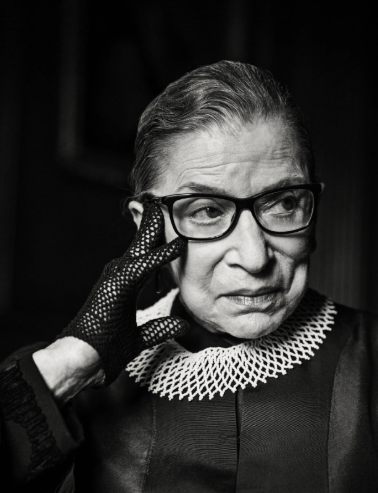A Completely Factual and Evidence-Based Appraisal of (most) AP Courses
- Rena Liu

- Oct 20, 2021
- 4 min read
So you’re a gifted student with a deep intellectual curiosity willing to push your limits and take the most challenging course load at your school. Or, you’re an academic nuthouse trying to shell out the last bits of your sanity and a few hundred dollars (or more) in hopes of looking like the former type of student. Either way, you are looking at which AP classes to take--good for you! As a current senior in a school that offers all AP courses except for some obscure languages like Italian and has taken an embarrassing number of them, I would like to sum up the vibes of each class I’ve taken to present a humble starting point to your delightful AP journey.
Before we get started, a few general guidelines:
Try your best to take classes with subjects you actually care about. I would explain further, but the Internet already agrees with me from both a mental health and college point of view, so I’ll direct you there.
I am a humanities-oriented politics nerd with the privilege of a lot of time to study, and the classes I chose reflect that--your choices will be different!
Now without further ado, I present to you my completely factual and evidence-based appraisal of all the AP classes I have experience in.
History: World History, European History, and United States History
Expect to spend lots of time studying what happened throughout...lots of time. These courses are HEAVILY based on reading, writing, and memorization (literally--those textbooks were absolute units). As someone interested in politics, this course laid my knowledge foundation to talk about the way the world is the way it is today. While that knowledge would be great for aspiring Silicon Valley grinds to have too, you may be frustrated with memorizing obscure facts and dates you don’t use often. One exception is AP US History: this one, if you live in the US, will help you understand everything from news to culture, and its coverage of slavery, imperialism, and genocide perpetrated by the US is a starting point for history every student should be aware of. The history version of the AP test is grueling: writing DBQs is no joke, and with the sheer amount of history you learn, you will have to review and study for this test.
Math and Science: Physics 1, Calculus AB, Calculus BC, Environmental Science
These classes broke me (more physics than calculus, but I’ve seen folks struggle with both). I went in thinking I was an academic god, and through many an ugly-cry session and an entire section of my finsta dedicated to chronicling my 3-hour sessions wrestling with single problems, I discovered I was not. Even for STEM-oriented folks, unless you’ve worked with the topics before, learning a new way of thinking and applying equations to problems takes a period of adjustment. I’d recommend taking this class in a semester where you will have as much time as you need to work through practice sets. Furthermore, be sure to make friends--having other people explain questions is what carried me through this course. One wave of photons in the darkness, nonetheless: once you understand a concept, applying it is the same every time. So all the hard work you do in class will translate well on the AP test!
Caveat: Environmental science. This one is basically reading and recalling information; rightfully called the easiest science course!
Social Sciences: United States Government, Comparative Government, Psychology, Human Geography
These are generally easy. Do the reading and pay attention + contribute to the class discussions that are a way of life in these courses, and you’ll not only bag a great AP grade but also a nuanced understanding of these subjects!
Capstone Courses: Seminar and Research
TAKE AT YOUR OWN RISK.
Pros: These classes, out of everything, are the most useful classes I’ve taken in high school. They teach you how to write (seminar) and conduct research, which you will engage with--to some degree--in college. Plus, you get a special Capstone diploma for your efforts!
Cons: Pain, a lot of it. I was constantly stressed at the sheer amount of work I had to do and how I had to set my own schedule to do it. Good teachers will break down the projects into smaller deadlines, but there is still a significant amount of self direction involved: the amount of effort you put into finding a good topic and good sources will translate into how good your final project is, and there is no way around it. Waiting until the last minute (something I definitely never did!) will cost you a few all-nighters.
Humanities: Art History and English Language
These courses are very different structurally, so I’ll cover them individually.
Art History: One of the best classes I’ve ever taken: yes, there is a lot of memorization, yes if you have a huge ego and think you could’ve made abstract art you will look like a clown, and yes there still are FRQs. However, your understanding of culture will majorly expand, you’ll gain an appreciation for a whole new aspect of the human experience, and you’ll get some great laughs over Jeff Koons.
English Language: This course is what you make of it: you can either participate in the class discussions and do the reading or keep yourself afloat just doing the required essays. Just a humble proposition, though: choose the former!
Languages: Chinese and Spanish Language
I self-studied Chinese as a heritage speaker, so learning languages without a class at your school are accessible as long as you familiarize yourself with the test format. However, if you get to take the class at school, the heavy grammar and writing are balanced by a focus on culture (including food!) that makes the semester very fulfilling.
--
Rena Liu
Senior
Knoxville
@renaliu_



Comments